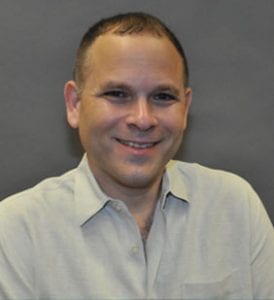One in Five Gerontology PhDs are earned at UMass Boston
The Gerontology program at UMass Boston (UMB) has recognized a significant milestone: its 100th dissertation defense. With the COVID-19 pandemic still requiring most academic work conducted remotely, Krystal Kittle defended her dissertation over Zoom. Her thesis advisor, Professor Kathrin Boerner, attended the online event as well other committee members, faculty, fellow students, and staff to show their support and celebrate her accomplishment.
Established in 1989, the UMass Boston Department of Gerontology is one of the world’s oldest and most recognized programs studying aging across the lifespan. Globally renowned for its multi-disciplinary curriculum, exemplary research and accomplished faculty, one in five gerontologists with a doctorate earned their degree at UMass Boston. The program is also home to the Journal on Aging & Social Policy and Research on Aging, both peer-reviewed journals edited, respectively, by UMass Boston faculty Edward Alan Miller, PhD, professor and doctoral program director for the department and Jeffrey Burr, PhD, professor and chair of the department.
“Doctoral education takes a commitment to the field and a willingness to sacrifice,” says Burr. “Our alumni exemplify dedication, perseverance, and passion for research that makes a difference in society. As we mark this milestone, we celebrate the hard work of our graduates, and the impact they make in the world.”
UMass Boston gerontology alumni have been major contributors to the strong international reputation of the program. They live and work across the globe, including in Canada, China, Germany, Israel, South Korea, Singapore, Switzerland, Saudi Arabia, Taiwan, Thailand, and across the U.S. Alumni work in a variety of healthcare settings, for local, state, and federal agencies, not-for-profits that address aging issues and as faculty, researchers and administrators in universities.
“Between the first dissertation defense and the 100th, our students have produced many innovative, cutting-edge research projects and publications in scholarly journals,” says Miller. “They add significantly to the knowledge base on aging, while informing practices and policies that impact older adults, their families and communities.”
Kittle, from California, was the first person in her family to go to college and the only one to earn an advanced degree. She chose to attend UMass Boston’s gerontology program because of its high graduation rate which, she reasoned, meant a supportive and patient faculty. Kittle said she was impressed with the collegiality among the program’s tightknit community of students and faculty.
“The endurance required for a doctorate is considerable,” she says. “The UMB faculty saw something in me that inspired me to keep going.”
Kittle’s dissertation centered on the healthcare of older LGBT adults and “The Role of Minority Stress, Sociodemographic Characteristics and Social Resources.”
“I was a little nervous, but more excited to share what I had worked so diligently on for so long,” she says.
Kittle joins an engaged and respected group of professionals. In a recent survey, nearly three-quarters of the program’s 100 doctorates shared how their degree had shaped and supported their career goals.
“My multidisciplinary training from UMB prepared me to be an effective collaborator—one that weaves together the expertise and perspective of colleagues towards a shared purpose,” noted one alum. “[My training] helped me develop extensive knowledge and hands-on skills in conducting qualitative and quantitative research studies that makes a real impact on the care and life of vulnerable and frail elders,” wrote another alum.
Identifying their current professional roles, alumni reflect the wide range of career opportunities available to gerontologists. These prospects are anticipated to increase as older populations are expected to outnumber younger populations in most countries. According to the U.S. Census Bureau, one in every five residents will be retirement age by 2030. By 2034, there will be 77 million Americans 65 years and older and 76.5 million Americans under the age of 18.
“One highlight of faculty life is maintaining relationships with our graduates as they progress in their careers,” says Burr. “We see them at conferences, collaborate on research and welcome their return to campus as guest lecturers.”
After she successfully defended her thesis, Kittle was told she had earned the program’s 100th doctorate. She said it gave her a strong “sense of pride for the program. It felt as if I had come full circle. It was a testament to the commitment that the faculty makes for their students.”
In April, Kittle begins work as a postdoc research fellow in the Social and Behavioral Health Program at the University of Nevada, Las Vegas School of Public Health. The focus of her work is Alzheimer’s disease and related dementias among LGBTQ middle-aged and older adults.




March 29, 2021 at 1:49 pm
So impressive! Congratulations and best wishes for a career that will enhance lives!
March 29, 2021 at 2:16 pm
Congratulations Dr. Krystal Kittle! on being the 100th dissertation at UMB! And, congrats on your new position at UNLV! My family and I lived in Las Vegas for a number of years and found it to be a very welcoming city with lots to do.
March 29, 2021 at 2:41 pm
Fantastic! Congratulations to Dr. Kittle and to all of the GERON alumni & faculty!!!
March 29, 2021 at 3:24 pm
Congratulations not only to Dr Kittle but also to the faculty and staff – past and present – who made the program’s success possible!
March 29, 2021 at 5:04 pm
Congratulations to Dr. Kittle and all 100 PhD Gerontology graduates. None of us could have done it without the support and expertise of a stellar faculty and staff!
March 29, 2021 at 7:15 pm
Congratulation, Dr. Kittle! Well done! Wishing you the best at UNLV! I hope you’ll stay connected to the UMass/Boston community!
March 29, 2021 at 8:53 pm
We are so proud of you Dr. Kittle! You worked extremely hard and took care of us at the same time! We love you!